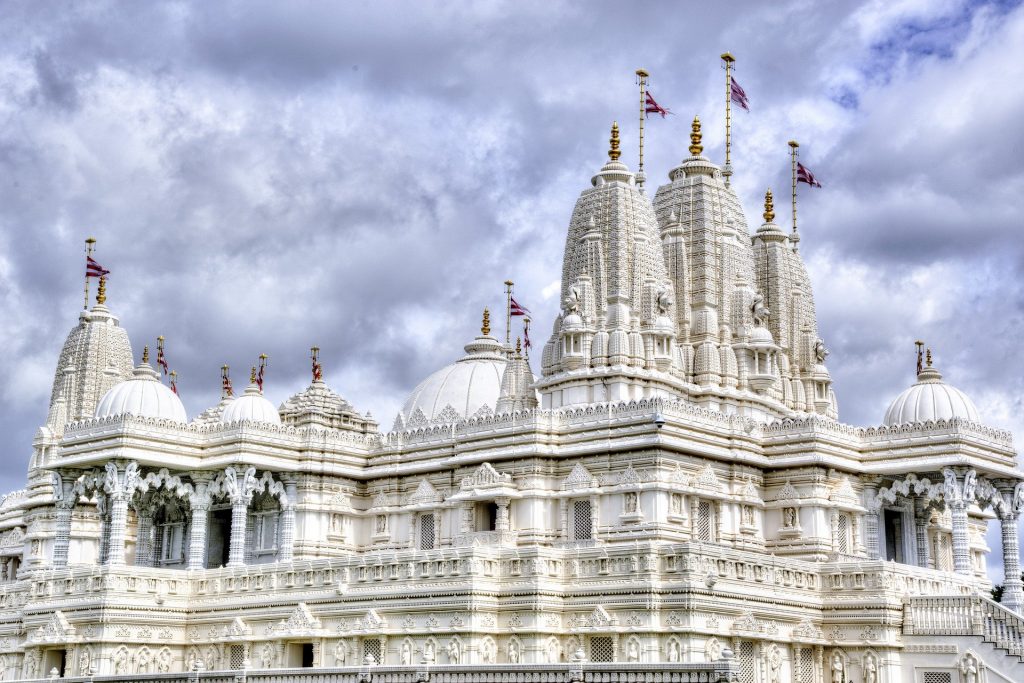NEW DELHI, Oct 30: Hindus in Pakistan have been permitted to construct temples and crematoria for performing the last rites of the deceased of the minority communities as per their faith.
Virtually ending the long-pending dispute over the construction of a temple in Islamabad, against which some local people had threatened agitation against the Imran Khan government, the Council of Islamic Ideology (CII) has ruled that there was no constitutional or Sharia constraints against constructing a temple in Islamabad or any other place in Pakistan.
The decision, signed by 14 members and delivered by Dr Qibla Ayaz, the Chairman of the council, said the Islamic law allowed minorities a place of worship similar to other religious groups in the country. “They too hold constitutional rights to have a place of their own and perform the last rites of the deceased according to their faith.” It said the decision had been taken “in the light of various provisions of Sharia.”
In a tweet message Lal Chand Malhi, a member of National Assembly of Pakistan and Parliamentary Secretary for Human rights stated:
“Council of Islamic Ideology in an interesting and appreciable decision today recommends government allowing minorities to build new temples/places of worship, graveyards and community halls all over Pakistan.”
In a video message on Facebook, Malhi welcomed the decision and commended the CII for providing justice as per the Pakistani law.
Malhi also thanked the Prime Minister of Pakistan, the Foreign Affairs and the Religious Affairs Ministers for the pro-minorities decision.
Giving details of the CII directions, Malhi in his five-minute video message said he was thankful to the Council and the government of Pakistan for allowing construction of the temple along with a Dharmsala and a community hall at the Saidpur Village, Islamabad, and later handing over the property to the Hindu community. He said the CII had also allowed the construction of a crematorium for performing last rites of the deceased in the same premises and construction of a community hall for holding religious functions for the minorities.
He requested the Pakistan government to reconsider its decision of not allocating funds for the construction of parts of the temple complex project which was scheduled to be constructed on the adjacent private land. As per the government’s decision, not only the Islamabad temple complex, any developmental activity of the minorities on non-government land would not receive any funds from the government.
According to Malhi, the CII, however, had approved amending the Evacuee Trust Property Board Law ETPB act under which funds emanating from Aqliat (minority) properties could be used for the construction of the temple. Aqliat properties are those properties/land left over by Sikh/Hindus who migrated to India during participation. The EPTB pact was signed by Nehru-Liaqat in April, 1950.
He also requested the government to leave it to the user minority communities to decide how they wished to utilize the government funds whenever it allocated funds for minority development in future. He requested the Islamabad Panchayat to complete the formalities to start with the crematorium and community hall. He further urged the Capital Development Authority (CDA) to allow the construction of the boundary wall which was stalled by them earlier.
Nepal Opens Tatopani Border with China
While the Raxaul border between India and Nepal remains closed due to the stance adopted by Nepal in not reciprocating India’s response of opening its side of the border, Nepal on Friday announced the opening of its Tatopani border with China.
Tatopani border in northern Sindhupalchok district in Nepal, an important border outpost with China, has come into operation after a long disruption. As per Lal Bahadur Khatri, Chief at Tatopani Dry Port and Customs Office, movement along the border point has resumed by the new border modalities between the two countries.
A three-kilometre stretch from Liping to Miteri Bridge is set up as an isolation area between both the countries amid fear of Covid-19 pandemic with a clear demarcation of a red colour zone for residents of China and a yellow colour zone earmarked for Nepali citizens. The area will have a dedicated health desk with quarantine facilities to control the spread of the virus during the cross-border movement.
Having crossed 1,50,000 positive cases China is wary of increasing number of positive cases in Nepal and are going all out to ensure the transit passengers are checked thoroughly before they enter the country. A group of five high-level Chinese officials, including customs officials and security officers, inspected the isolation yard and were satisfied with the modality adopted to control the spread of the virus through border points.
Goods will be imported through containers to Nepal as per the new health security modalities.
Earlier the Tatopani border outpost was reopened in the first week of October but was again closed by China after three Nepali workers tested positive. The local people, however, have expressed concern over the decision to re-open the border outpost. They have moved the people’s representatives, the district administration office, customs office and security agencies to adopt health security measures to check possible transmission of the virus.
(Venkatesh Iyer)

